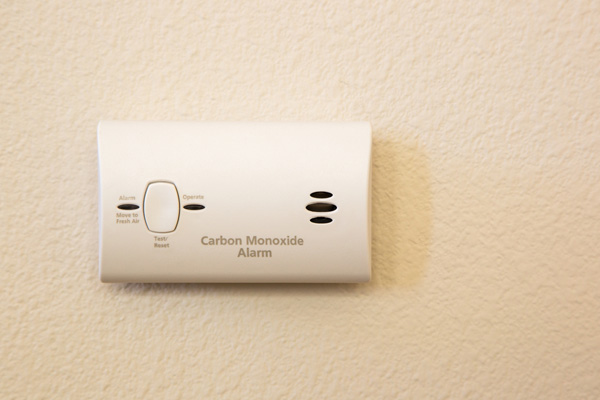Gas Vs. Oil Furnaces: Which Is Best?

You might be wondering which is the better choice between natural gas or a heating oil furnace. It is not an easy question to answer. Both these fuels are used to heat our homes, but they are very different from one another. This is especially when it comes to their furnaces. Fortunately, this article includes an in-depth comparison of gas vs. oil furnaces. It also consists of a few factors to consider before choosing one over the other.
Gas Vs. Oil Furnaces: Which Is Best?
Read on to find out what makes oil furnaces different from natural gas furnaces. This way, you have a better understanding of what each can offer your home.
Upfront Oil Vs. Gas Furnace Costs

If you have a limited budget for a new furnace, an oil furnace might be a better choice than a gas furnace. After all, gas furnaces tend to be costlier between the two, especially if you already own an oil furnace. An oil heating system consists of hardware parts like the storage tank. Converting it to a natural gas furnace can also be expensive. A few factors to consider for this process include the HVAC ducts, chimney, plumbing, and the oil storage tank removal cost. Oil to gas conversion is very expensive. Therefore, it is recommended that you make careful considerations before deciding to do it.
However, it is worth remembering that whatever furnace you choose will likely operate more efficiently than an older unit. Modern furnaces are equipped with higher Annual Fuel Utilization Efficiencies ratings. As a matter of fact, new furnaces can have as high as 98.5% AFUE ratings. If your furnace is a decade old, it might be working up to 30% less efficiently than newer models.
Which Fuel Is Superior: Heating Oil Or Natural Gas?

The cost of heating oil per BTU might be slightly higher than natural gas per BTU. However, having a tank full of heating oil in your home gives you a heightened sense of security. It is delivered to your home, and you don’t have to worry about any disruptions due to system failures, including pipeline leaks, that can affect the supply of natural gas. It is also crucial to note that heating oil burns hotter compared to natural gas. As a result, heating oil can heat a room faster than natural gas while burning less fuel to do so. Moreover, there is less condensation because oil furnaces burn hotter, so your furnace can enjoy a longer service life. Keep in mind that heating oil might be priced higher than natural gas, but it is cheaper to use in the long run.
Maintenance Of Oil vs. Gas Furnaces
The chimney flue or vent is where combustion products are channeled out. Therefore, it should remain clean and leak-free for both kinds of furnaces so that toxic fumes do not drift back into your home. This will also ensure efficient combustion. Oil and gas furnaces have a burner, air handling equipment, and heat exchanger. Both also have a pump that channels the fuel to the furnace. Additionally, the air filters in both variants of furnaces should be changed regularly.
Overall, oil furnaces are safer to operate. If a problem arises, an oil furnace will show apparent symptoms before dangerous carbon monoxide gas leaks into your home. The same does not happen when you use gas furnaces.
What To Consider Before You Purchase A Gas Furnace
Some of the things you need to think about before buying a gas furnace are as follows:
Gas Requires More Safety Precautions

Oil heating systems have warning signs when they are not working at optimal levels. The same doesn’t happen with natural gas furnaces. Natural gas leaks are the leading cause of carbon monoxide poisoning fatalities in the United States. It can also result in explosions. When you use a natural gas furnace and there is insufficient venting, carbon monoxide might end up circulating in your home and cause deaths.
Worries About Gas Supply
There is a rise in natural gas consumption after concerns on whether local production can keep pace with the increasing demand. Moreover, most of the global gas reserves are located outside the United States. This means that there is a possibility that there will come a time that the country will have to depend on natural gas imports.
Fewer Service Options
One big utility company usually supplies natural gas, so you are left with limited selections when choosing a natural gas supplier. Additionally, gas furnaces depend on a pipe system to move gas into homes and other structures. Therefore, a leak or pipeline issue can disrupt the service or endanger your home. Excellent heating oil providers, like R.F. Ohl, offer a wide range of options so you can manage your energy bills better.
Why You Should Consider An Oil Furnace
Here are a few reasons you should consider installing an oil furnace in your home:
- Plentiful Fuel Oil Supply – The number of global petroleum and oil reserves is at their highest. If an international shortage ever happens, the US doesn’t depend on one source nor depend on imports. The Strategic Petroleum Reserve has 727 million barrels, while the Northeast Heating Oil reserve has 2 million barrels. Moreover, oil supply firms, like R.F. Ohl, always have enough supply and a simple and highly efficient ordering process.
- Converting Oil To Gas Is Expensive – Keeping an oil furnace is far more economical when considering the high expense of converting an oil furnace to an oil heating system.
- Heating Oil Systems Are Exceptionally Clean – Modern furnaces emit minimal emissions and ‘reburn’ fuel, reducing emissions further. Moreover, a system that is regularly maintained typically burns cleanly. The generated soot stays inside the tank. On the other hand, natural gas furnaces have the biggest contribution to global methane emissions.
- Innovative Heating Oil Technologies – Innovative technologies mean that heating oil systems and their fuel are made to be cleaner and more efficient. These advancements mean that oil furnaces consume less heating oil while still providing the comfort you deserve.
- Safer To Use And Store – Heating oil will not catch fire unless its temperature reaches 140 degrees Fahrenheit or when it vaporizes. Therefore, dropping a lit match in it won’t cause it to spark a fire. Instead, the flame will go out as if the match was dropped in water. Moreover, heating oil systems give obvious signs before releasing carbon monoxide, while natural gas systems do not. Also, natural gas systems and leaks can explode, making it more dangerous.
- Heating Oil Systems Have Long Lifespans – Heating oil furnaces tend to be efficient, safe, and long-lasting. As a matter of fact, well-maintained oil furnaces typically last for over 25 years.
- Higher Rate of Water Recover – The hot water recovery rate of heaters powered by oil is twice as much as the rate of hot water recovery in gas-powered heaters.
- More Fuel Service Options And Control – Using a heating oil system means you get more control over the supply and how you manage your fuel. This way, you can select the oil provider, the amount of oil to buy, and the delivery schedule. You can control the supply as well because the storage tank is installed in your home.
Conclusion
You should be able to select the most suitable furnace to fit your needs now that you are equipped with this information.
Call R.F. Ohl For Fast & Reliable Home Heating Oil Deliveries

If you need to have heating oil delivered to your house, call R.F. Ohl. Our prices for quality discounted heating oil are the best. We also offer efficient heating solutions for your family and home.
The expert technicians on our team are equipped to handle any HVAC repair or maintenance. Contact us to hear about our various services. We can assist by answering your questions and concerns. For more information about our efficient HVAC services or oil deliveries, call R.F. Ohl today!
Call us today to learn more. Click here or call us at (610) 377-1098 to contact us today!
